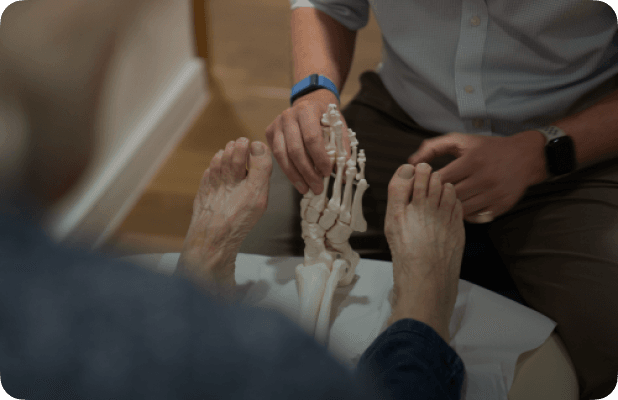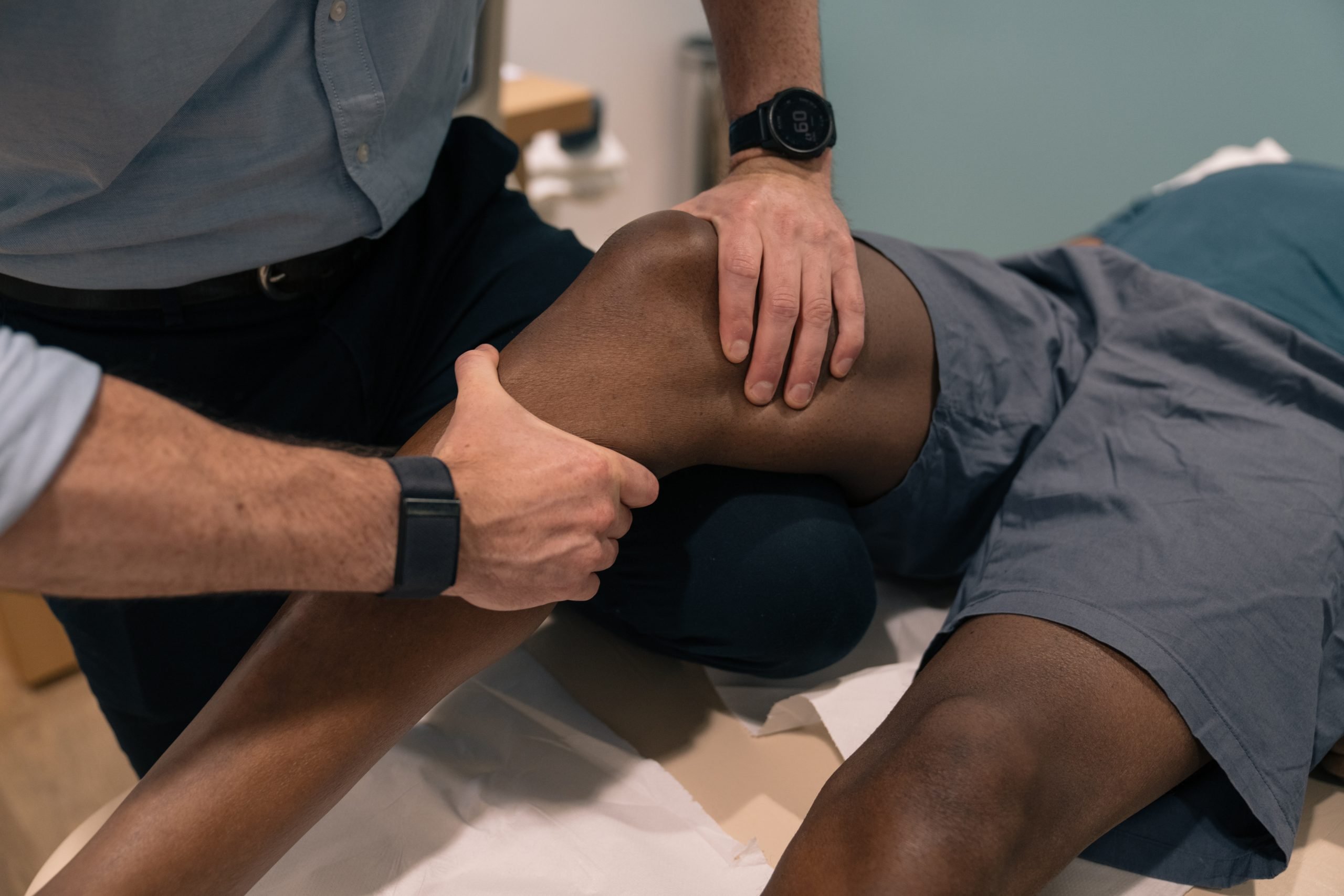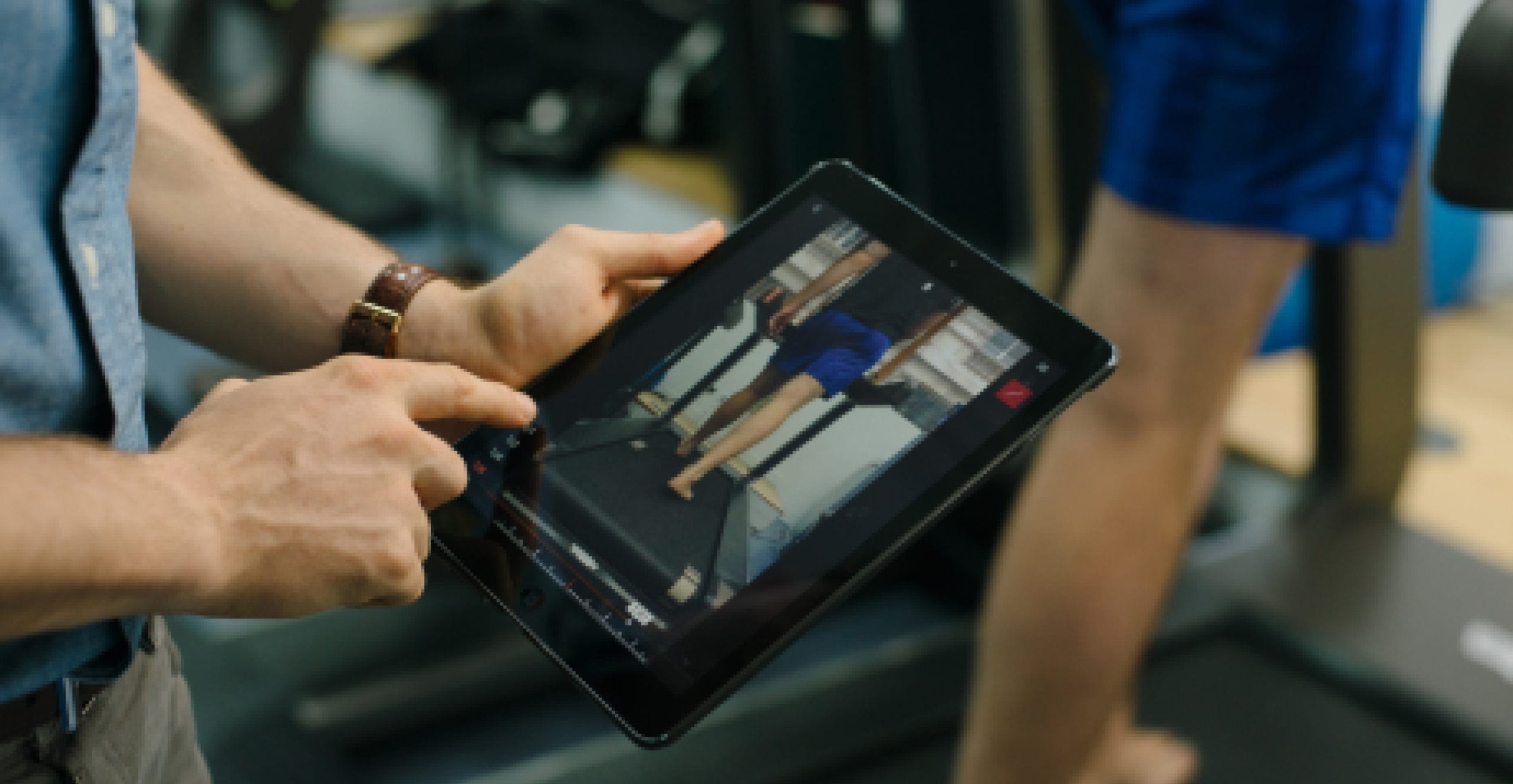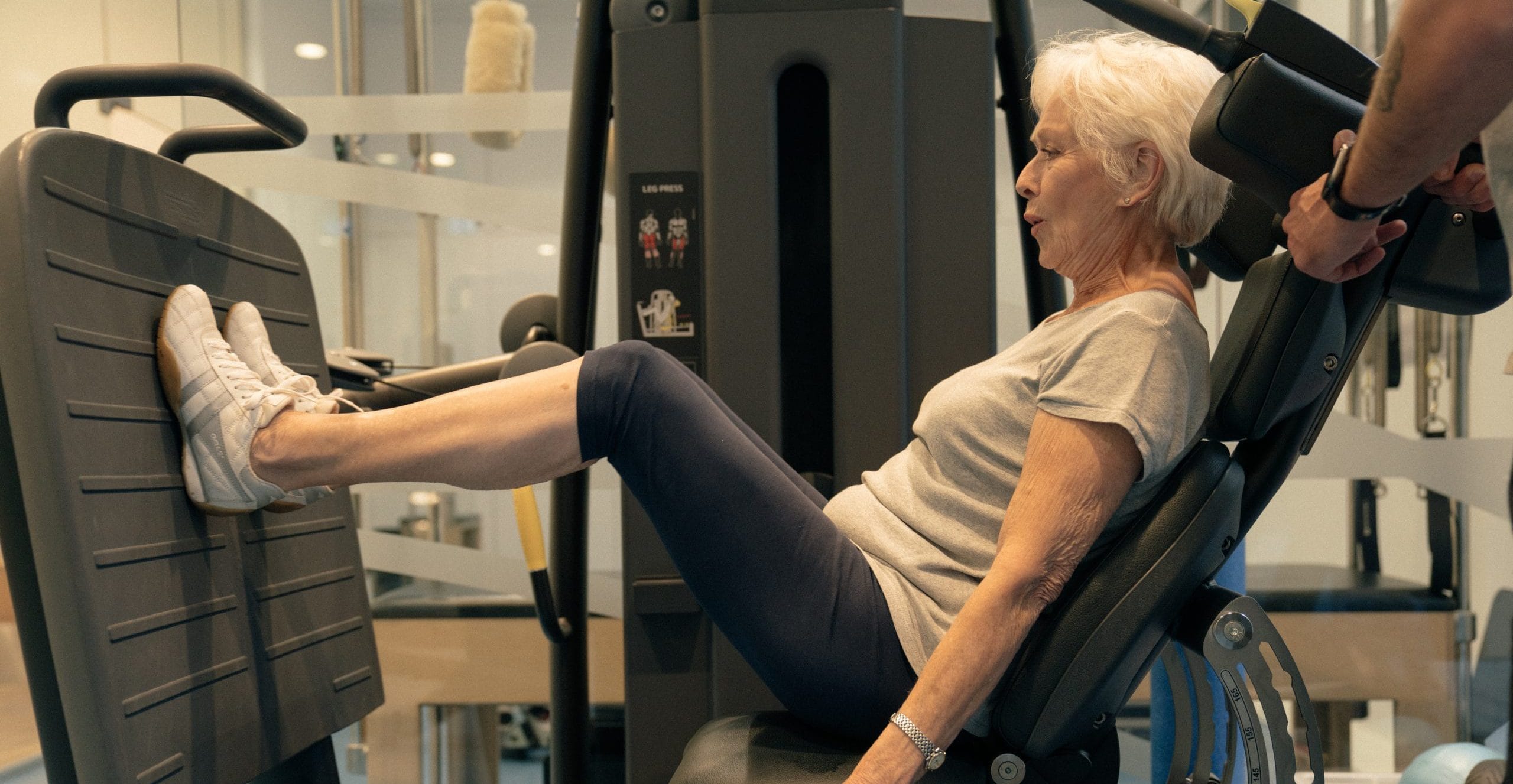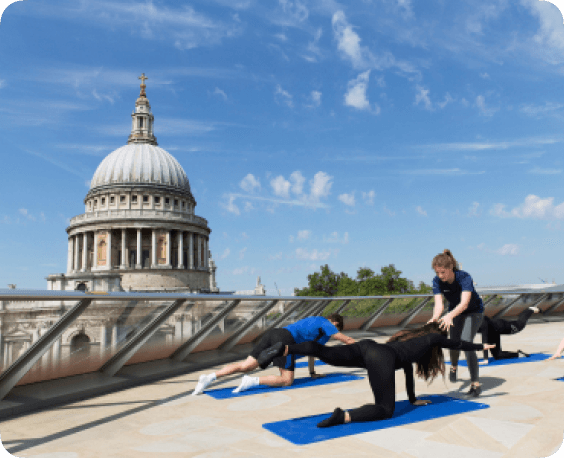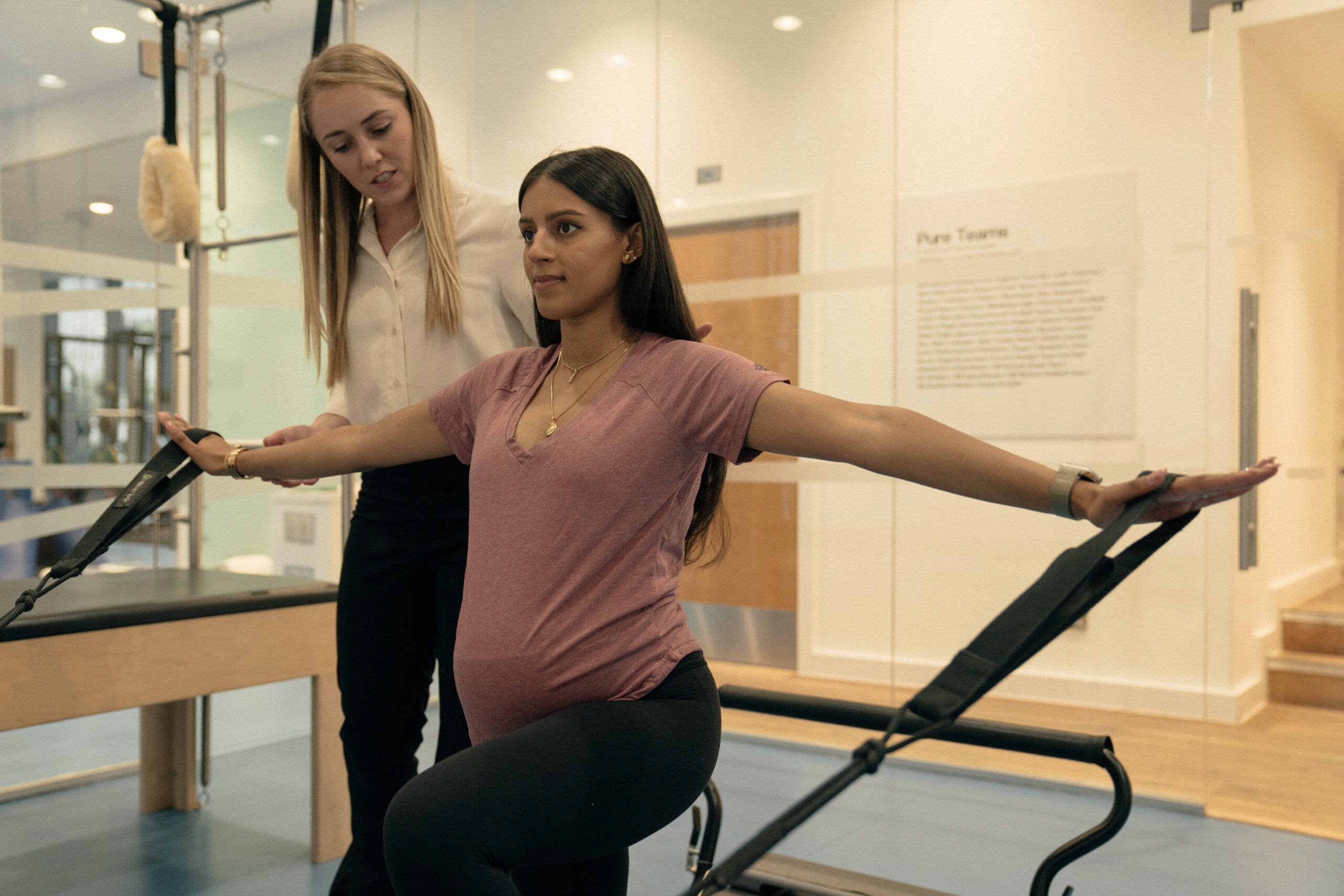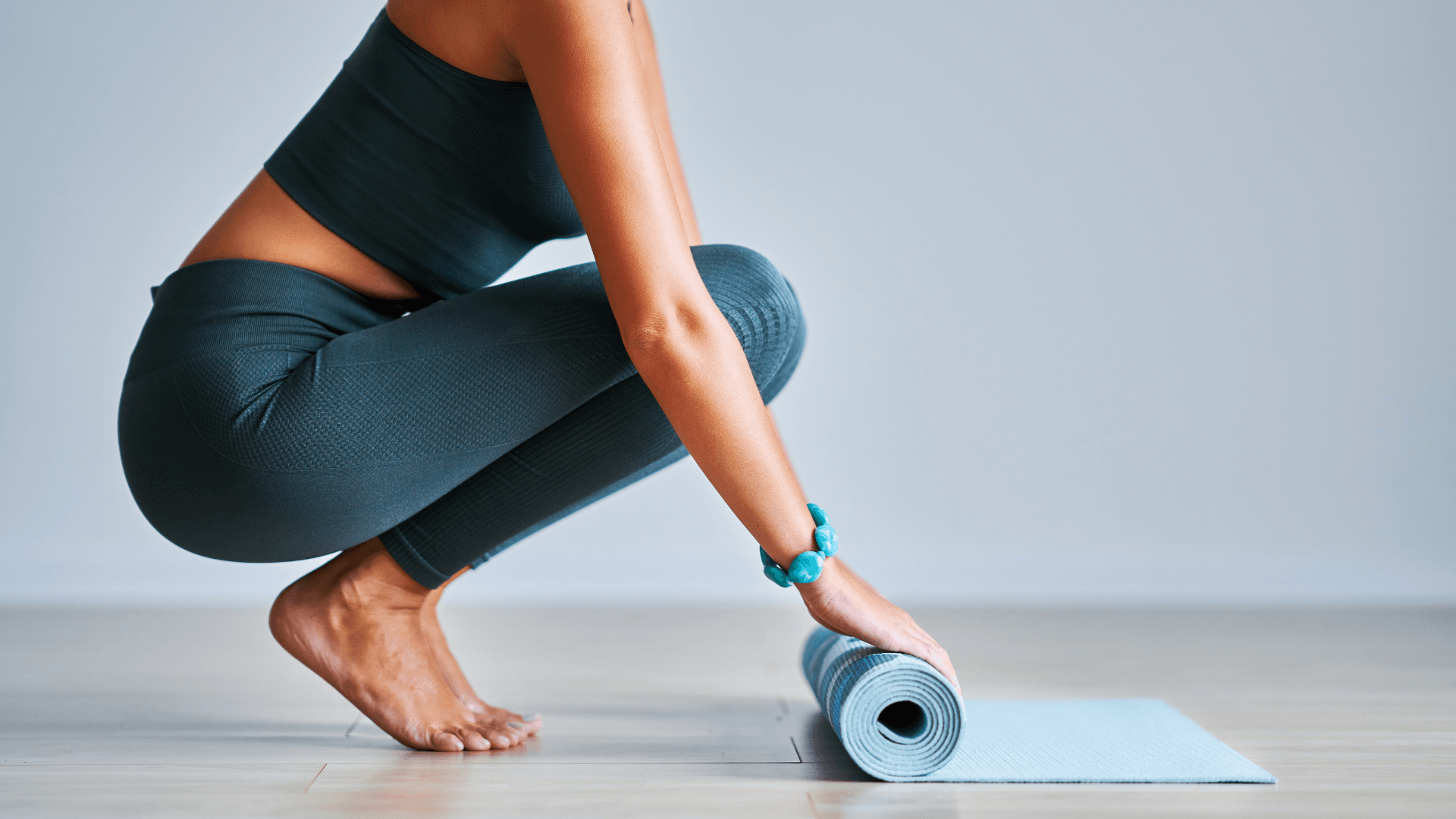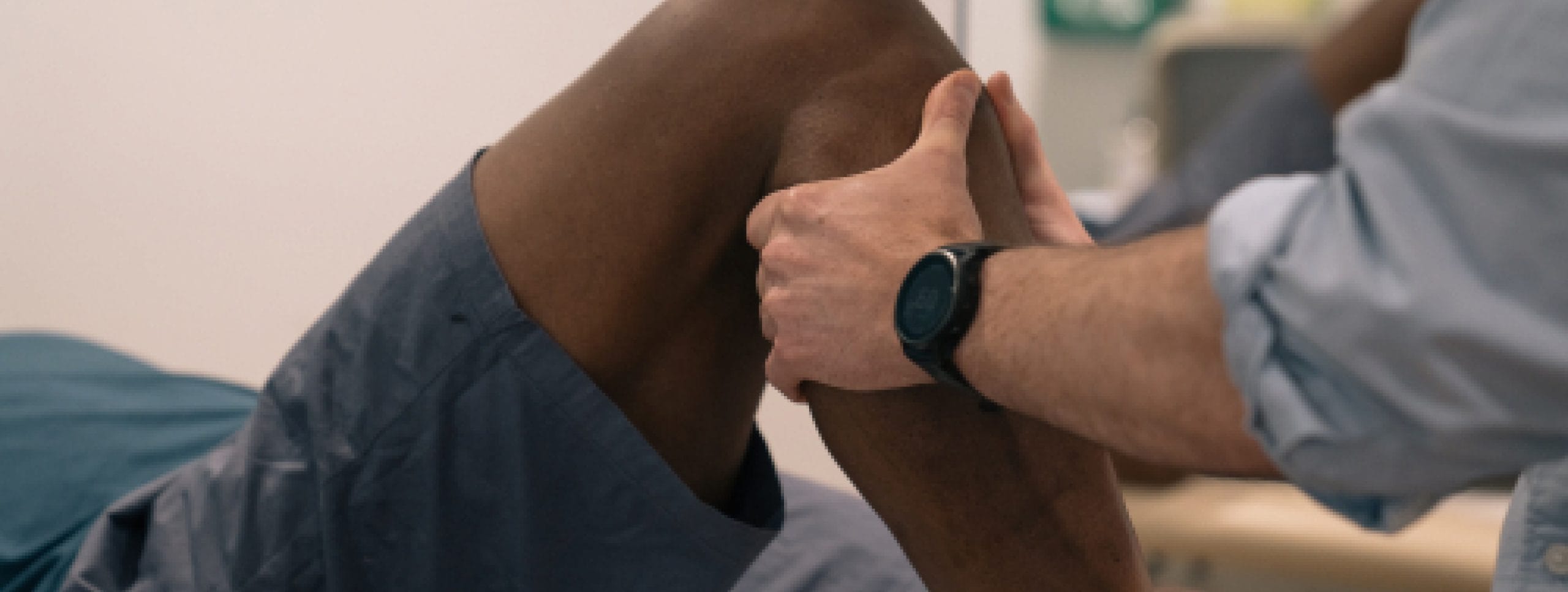
Physio-led Pilates
Our expert Physiotherapists incorporate the theories and practices of Pilates in to your rehab and treatment to deliver effective clinical interventions and provide individualised rehabilitation programs.
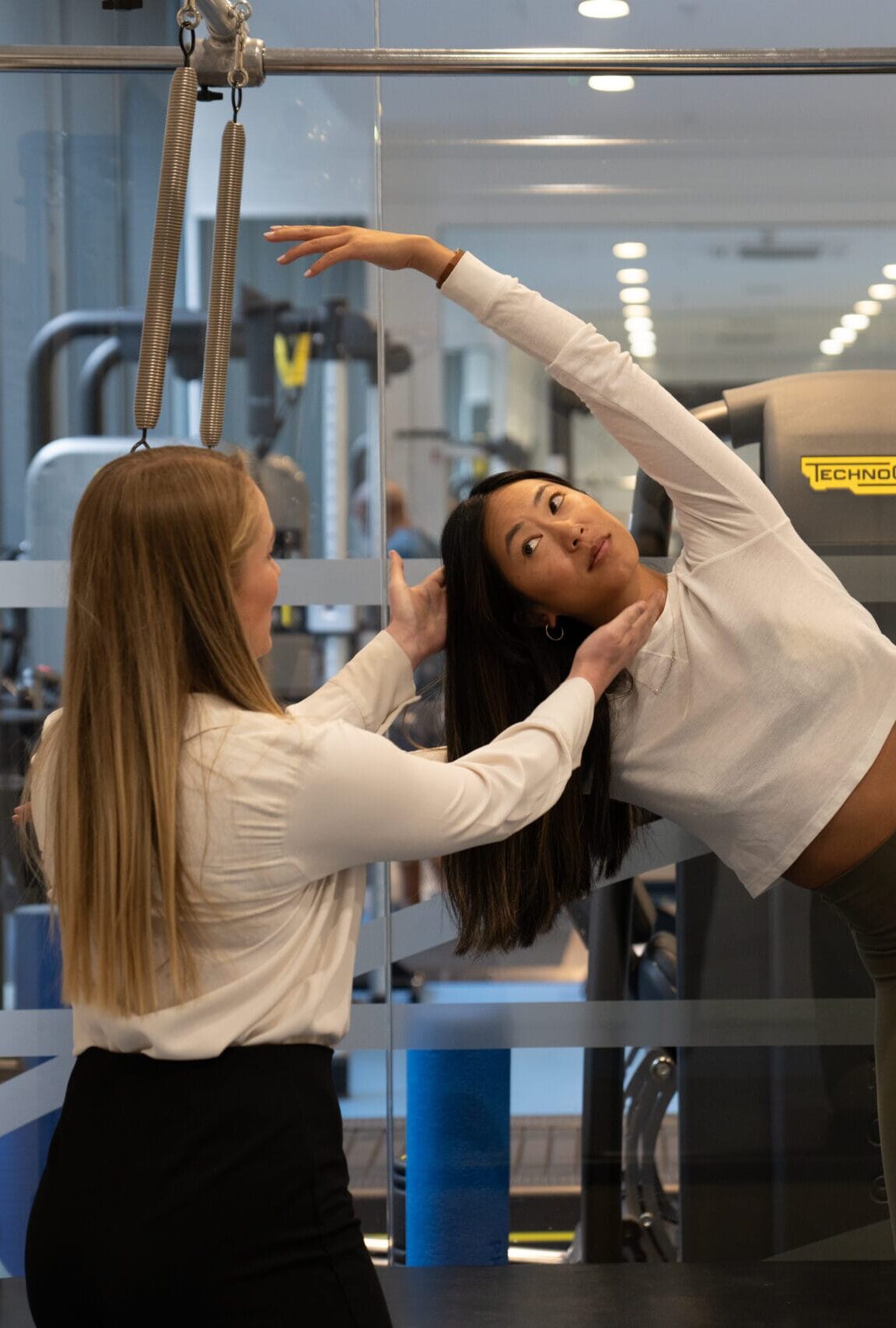
With your initial appointment, your clinician will conduct a subjective interview to find out about your medical history and goals, they will then evaluate your posture and movement patterns based on your injuries or areas of concern.

At the end of your session you will leave with a good understanding of the principles of Pilates and how to take that into your daily life. Your clinician will also create and deliver an individualised treatment plan to help you achieve your specific goals.
Book an appointmentOur Physio-led Pilates Specialists
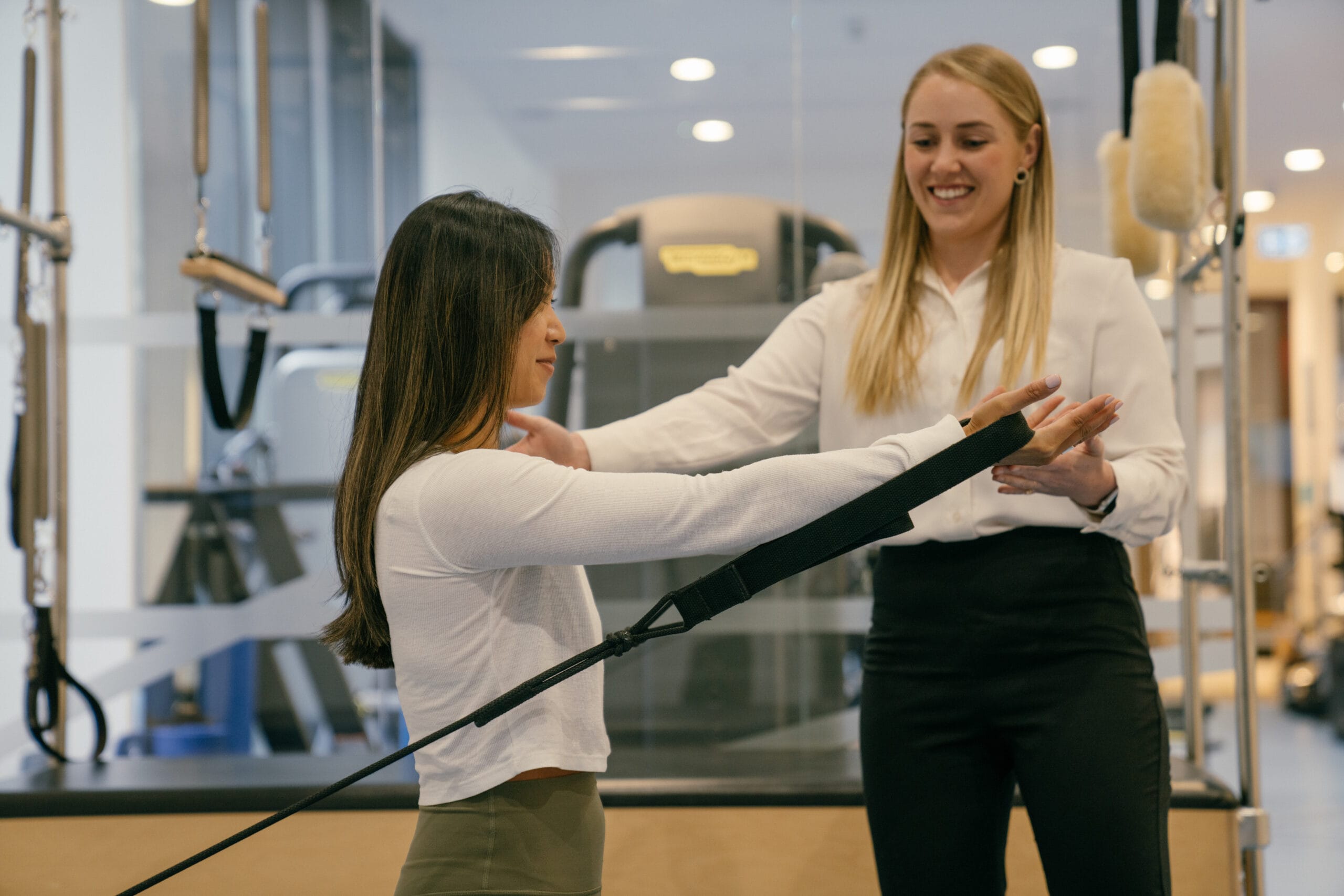
Pricing
- Initial appointment (60 mins) – £128
- Follow-up appointment (30 mins) – £88
- Extended follow-up appointment (60 mins) – £128
- 6-session pack (60 mins) – £720
- 10-session pack (60-mins) – £1,150
Physio-led Pilates can help with
a number of issues
Physio-led Pilates is particularly beneficial for individuals with spinal conditions and mobility issues, as it combines the principles of Pilates with clinical expertise tailored to each person’s needs. Guided by a physiotherapist, the exercises are carefully adapted to address specific spinal concerns such as disc issues, postural imbalances, or chronic back pain. The focus on core strength, spinal alignment, and controlled movement helps to support the spine, reduce pain, and improve overall stability. Additionally, physio-led Pilates promotes gentle, progressive mobility, making it a safe and effective way to restore function and enhance confidence in movement for those managing spinal conditions.
Physio-led Pilates can be highly beneficial for individuals with respiratory conditions by improving breathing efficiency, lung capacity, and overall respiratory control. Guided by a physiotherapist, the sessions incorporate targeted breathing techniques—such as diaphragmatic and lateral breathing—that help strengthen the respiratory muscles and promote better oxygen exchange. These techniques also support relaxation and reduce breathlessness, which can be particularly helpful for conditions like asthma or post-viral fatigue. Combined with gentle movement and posture-focused exercises, physio-led Pilates can enhance chest mobility, reduce tension, and support overall respiratory health in a safe, structured environment.
Physio-led Pilates is a safe and effective way to support individuals with joint conditions such as arthritis or joint replacements. Under the guidance of a physiotherapist, exercises are carefully tailored to protect vulnerable joints while promoting strength, flexibility, and stability. The low-impact nature of Pilates makes it ideal for reducing joint strain while encouraging movement, which can help alleviate stiffness and pain. By improving muscle support around affected joints and enhancing overall body alignment, physio-led Pilates can increase mobility, restore confidence in movement, and contribute to better long-term joint health and function.
Physio-led Pilates plays a valuable role in post-surgery rehabilitation by offering a controlled, low-impact approach to restoring strength, mobility, and function. Tailored by a physiotherapist to suit individual recovery needs and timelines, the exercises focus on improving core stability, posture, and muscle balance without overloading healing tissues. This personalised guidance helps to rebuild confidence in movement, reduce pain and stiffness, and prevent compensatory patterns that could lead to further issues. Whether recovering from orthopaedic, spinal, or abdominal surgery, physio-led Pilates provides a safe and progressive pathway to regain mobility and support a full, functional recovery.
Physio-led Pilates can be a highly effective tool for managing chronic pain by promoting gentle, structured movement that helps reduce tension, improve mobility, and build strength without aggravating symptoms. Guided by a physiotherapist, the exercises are adapted to individual needs, focusing on core stability, posture, and breathing to support the body and ease pain. By encouraging mindful movement and body awareness, physio-led Pilates helps individuals regain control, reduce fear of movement, and break the pain cycle often associated with chronic conditions. Over time, it can lead to improved function, greater confidence, and a better quality of life.
Physio-led Pilates is a safe and supportive way to enhance pre- and post-natal care, helping women maintain strength, stability, and mobility during and after pregnancy. Guided by a physiotherapist, the exercises are tailored to the changing needs of the body, focusing on pelvic floor function, core support, and posture. During pregnancy, Pilates can ease discomfort, improve breathing, and prepare the body for labour, while postnatally, it aids recovery, supports healing, and gently restores strength and muscle tone. With its low-impact approach and clinical oversight, physio-led Pilates provides a nurturing environment for women to move confidently and safely.
Physio-led Pilates is an excellent way to achieve full-body toning and conditioning through precise, low-impact exercises that strengthen and lengthen muscles. Led by a physiotherapist, the sessions ensure correct technique and alignment, targeting deep core muscles, glutes, legs, and upper body to improve muscle definition and overall balance. The controlled movements help build endurance and functional strength without placing stress on the joints, making it suitable for all fitness levels. Regular practice not only enhances muscular tone and posture but also supports injury prevention and improved movement efficiency in everyday life and sport.
Physio-led Pilates is a powerful tool for peak performance training, offering athletes and active individuals a structured way to enhance core strength, flexibility, control, and body awareness. Under the expert guidance of a physiotherapist, exercises are tailored to complement sport-specific demands, improve movement efficiency, and address any biomechanical imbalances that could limit performance or lead to injury. Pilates helps refine posture, coordination, and muscular endurance, supporting faster recovery and better functional movement. Whether as part of a training programme or injury prevention strategy, physio-led Pilates can elevate athletic performance safely and effectively.
Physio-led Pilates can be especially beneficial for individuals recovering from Diastasis Recti Abdominis, a condition where the abdominal muscles separate during or after pregnancy. Under the supervision of a physiotherapist, targeted exercises are used to gently strengthen the deep core muscles, particularly the transverse abdominis and pelvic floor, without placing undue strain on the healing tissue. The focus on controlled movement, posture, and breathing supports the gradual closure of the abdominal gap, helps restore core function, and reduces the risk of further injury. With clinical guidance, physio-led Pilates offers a safe, effective approach to recovery and long-term abdominal health.
Physio-led Pilates is highly effective in supporting individuals with pelvic floor conditions by incorporating targeted exercises that strengthen and coordinate the deep core muscles, including the pelvic floor. Guided by a physiotherapist, the programme is tailored to address specific issues such as pelvic floor weakness, incontinence, or prolapse, ensuring exercises are performed safely and effectively. Pilates promotes better control, awareness, and endurance of these muscles, which are essential for bladder and bowel function, core stability, and overall pelvic health. Over time, physio-led Pilates can help reduce symptoms, improve confidence, and enhance quality of life.
Physio-led Pilates can be highly beneficial for managing inflammatory conditions such as arthritis or autoimmune disorders by focusing on gentle, controlled movements that reduce joint stiffness and promote muscle strength. Under the guidance of a physiotherapist, exercises are tailored to the individual’s condition and limitations, helping to improve mobility, alleviate pain, and prevent further joint damage. The low-impact nature of Pilates supports the joints while strengthening the muscles around them, which can help stabilise and protect affected areas. Additionally, Pilates promotes relaxation, reduces stress, and enhances body awareness, contributing to overall well-being for those dealing with inflammatory conditions.
Physio-led Pilates is an excellent approach for managing joint hypermobility by focusing on strengthening the muscles around hypermobile joints to provide better support and stability. Under the guidance of a physiotherapist, exercises are designed to improve muscle control, proprioception, and joint stability, helping to reduce the risk of injury and strain. Pilates emphasises core strength, proper alignment, and controlled movement, which helps to prevent excessive joint movement and supports the body in maintaining a safe range of motion. Regular practice can improve joint function, reduce discomfort, and enhance overall body awareness for those with hypermobility.
Physio-led Pilates at Pure
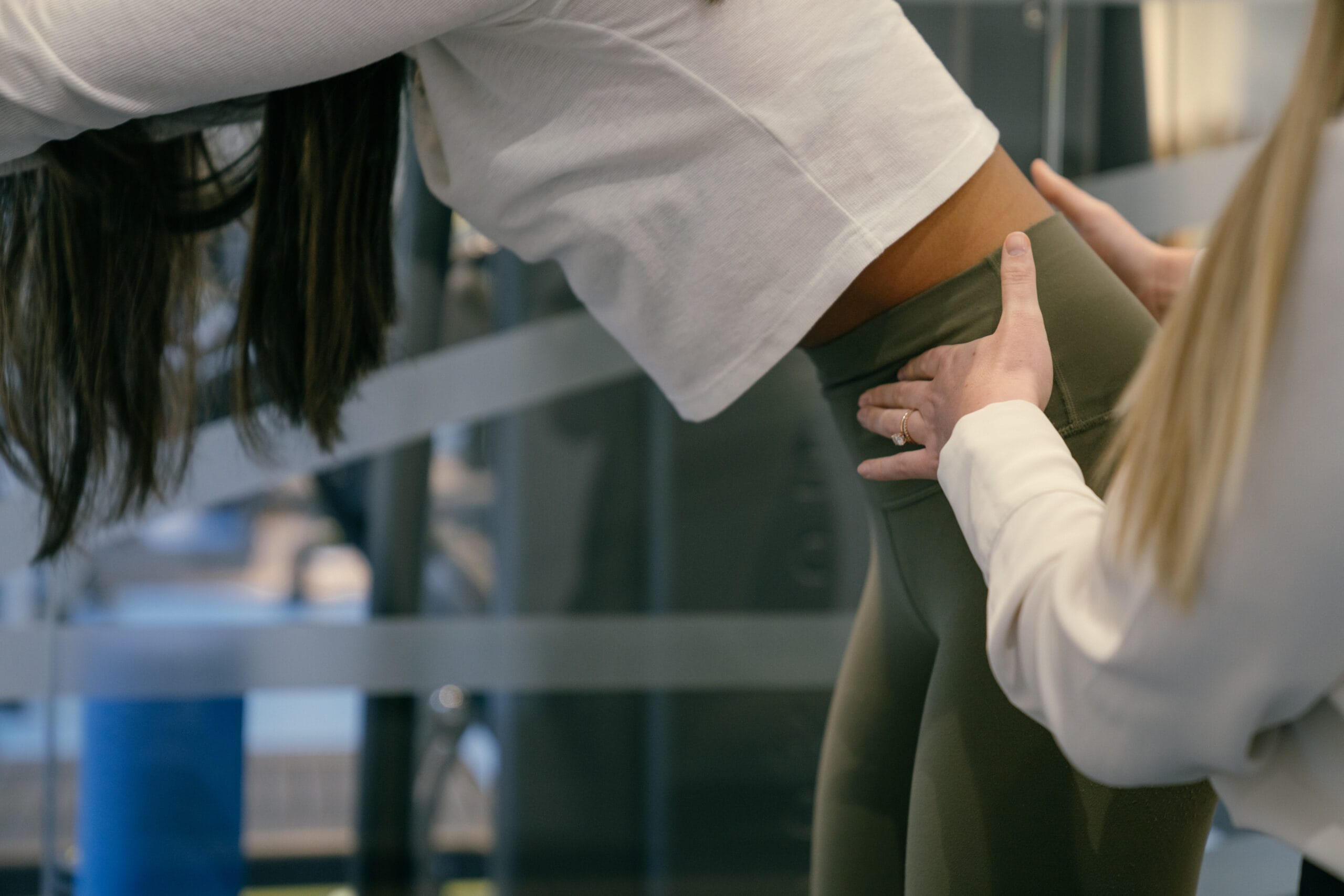
Your body is your most important investment, and it deserves more. Make sure you get the tailored care and treatment your individual needs require.
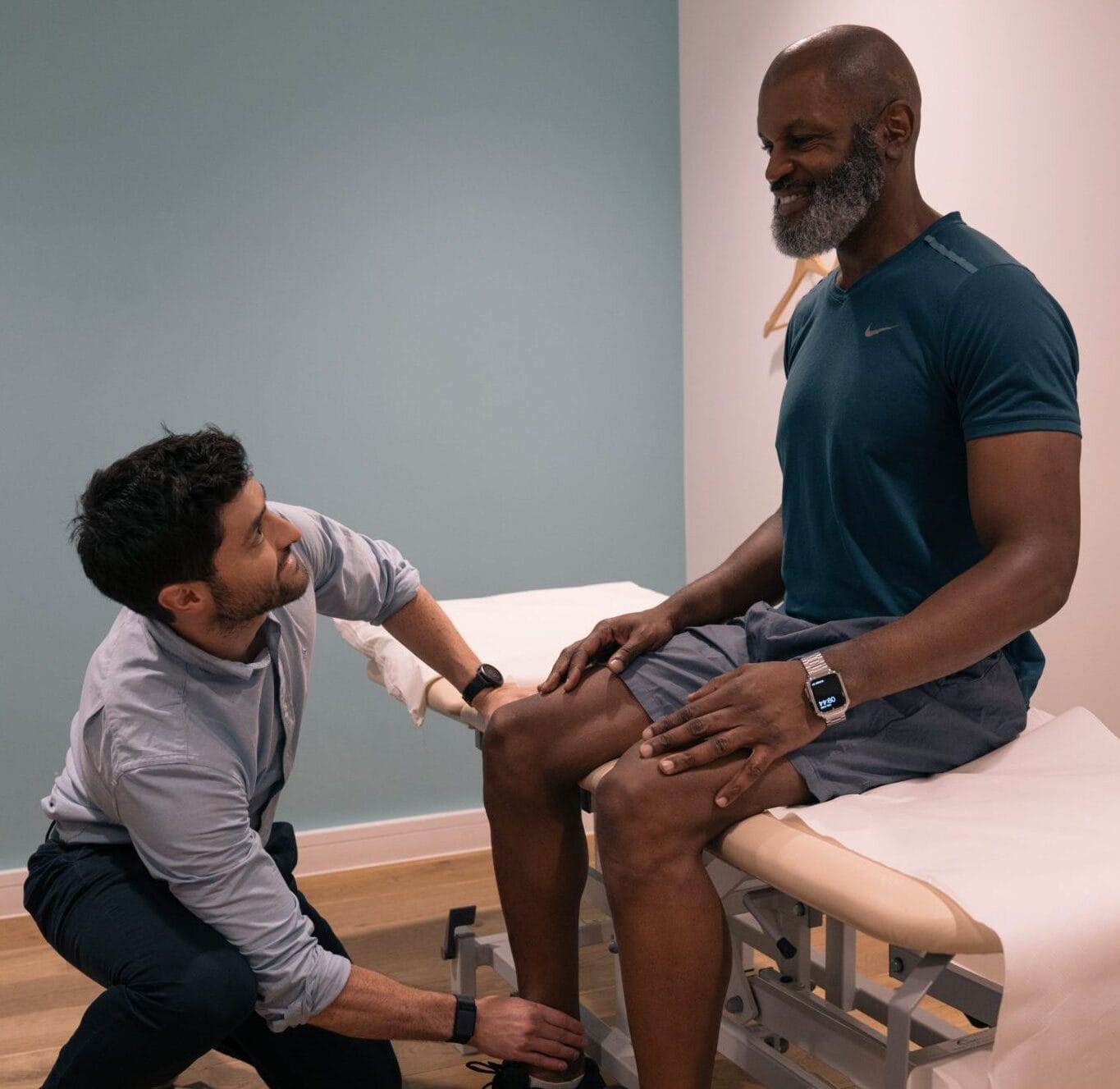
-
Work with a dedicated team of specialists, tailored to meet your specific needs and goals.
-
We combine over 1,000 years of expert experience in musculoskeletal healthcare and elite sport.
-
We are covered by all major insurers and also offer flexible self-pay options for added convenience.
Your Journey with Pure
Everything we do is personalised to you. Whether your goal is to run a marathon or simply walk up the stairs comfortably, we’ll deliver the correct diagnosis and tailored treatment you need to get there so that you can perform at your best and prevent reoccurrence.
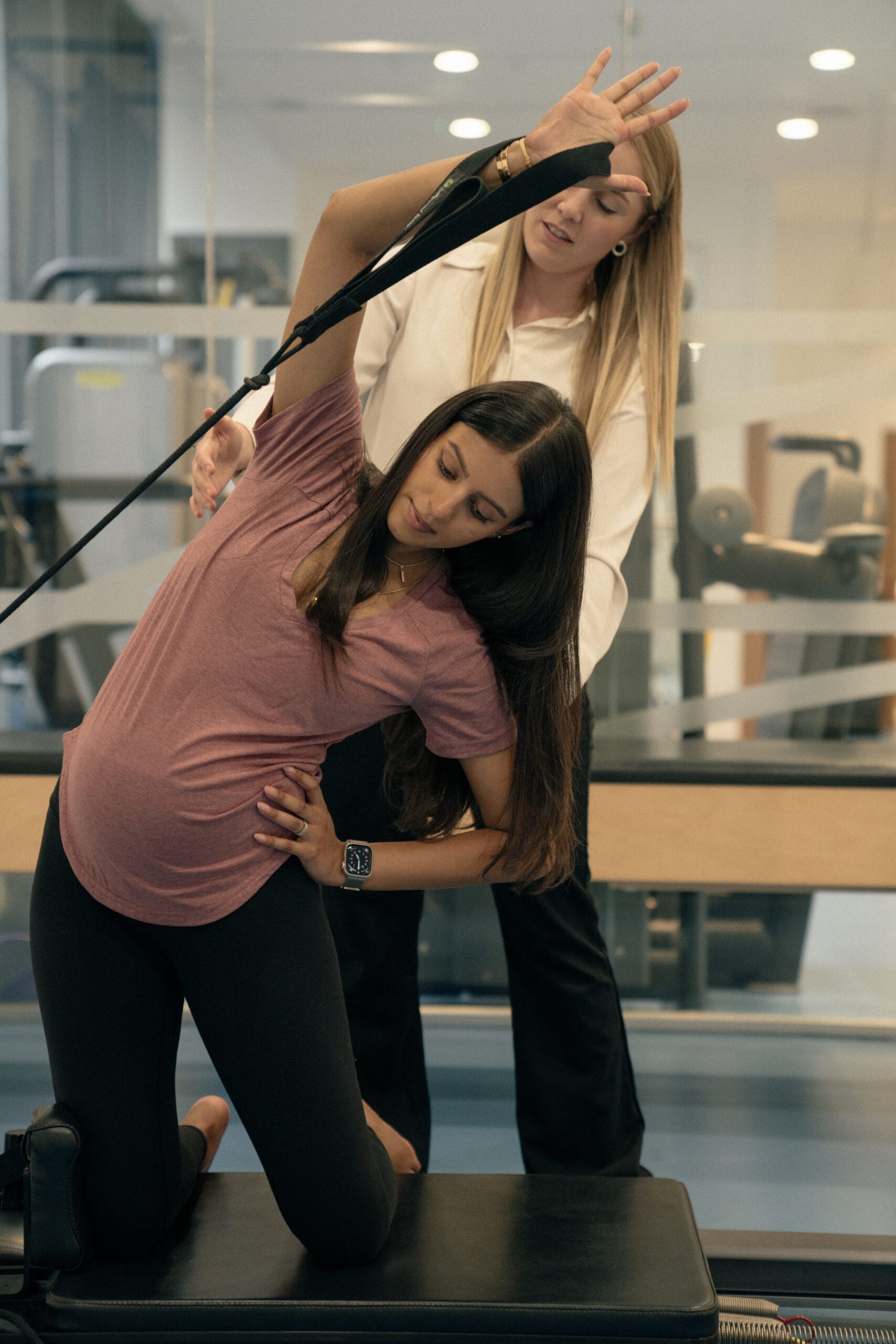
Treatments can include:
- Breathing re-education
- Posture correction
- Myofascial release
- Body awareness and coordination training
- Stretching
- Strengthening
- Static and dynamic balance
- Use of equipment such as Cadillac-Reformer, Reformer, Pilates balls, Pilates circles, resistance bands, light weights
Frequently asked questions
Physio-Led Pilates combines the core principles of Pilates with the expertise of a physiotherapist. This approach ensures that exercises are performed safely and effectively, tailored to your body’s needs, and designed to help with injury recovery, pain management, and overall movement quality. Physio-Led Pilates is highly personalised and clinically informed.
A physiotherapist assesses your movement, strength, and flexibility before designing a Pilates program suited to your specific needs. Sessions focus on controlled movements, core strength, posture, and flexibility while addressing underlying musculoskeletal imbalances. It is particularly beneficial for rehabilitation, injury prevention, and managing chronic pain.
If you experience chronic pain, are recovering from an injury, have postural issues, or need specialised support (e.g., pre- and post-natal care, menopause-related changes, or pelvic health concerns), Physio-Led Pilates could be an excellent choice. It is also ideal if traditional Pilates classes have not met your needs due to large class sizes or a lack of individualised attention.
The duration varies depending on your goals. Some people notice improvements within a few weeks, while others continue for long-term benefits. Sessions typically last an hour, with the number of sessions depending on your condition and progression.
Regular Pilates classes are often taught by fitness instructors and focus on general strength and flexibility. Physio-Led Pilates is led by a Physiotherapist who applies their clinical expertise to ensure exercises are safe and effective, particularly for those with injuries, pain, or medical conditions. This personalised approach minimises the risk of injury and maximises rehabilitation outcomes.
Yes, you can self-refer for Physio-Led Pilates. No doctor’s referral is required, but if you have a medical condition, consulting the Physio beforehand may be beneficial to determine if you are ready to start Physio-Led Pilates.
Yes, Physio-Led Pilates is often recommended for managing and reducing pain. Physiotherapists tailor movements to your condition, ensuring exercises do not exacerbate discomfort but instead promote strength, flexibility, and pain relief through graded exposure.


